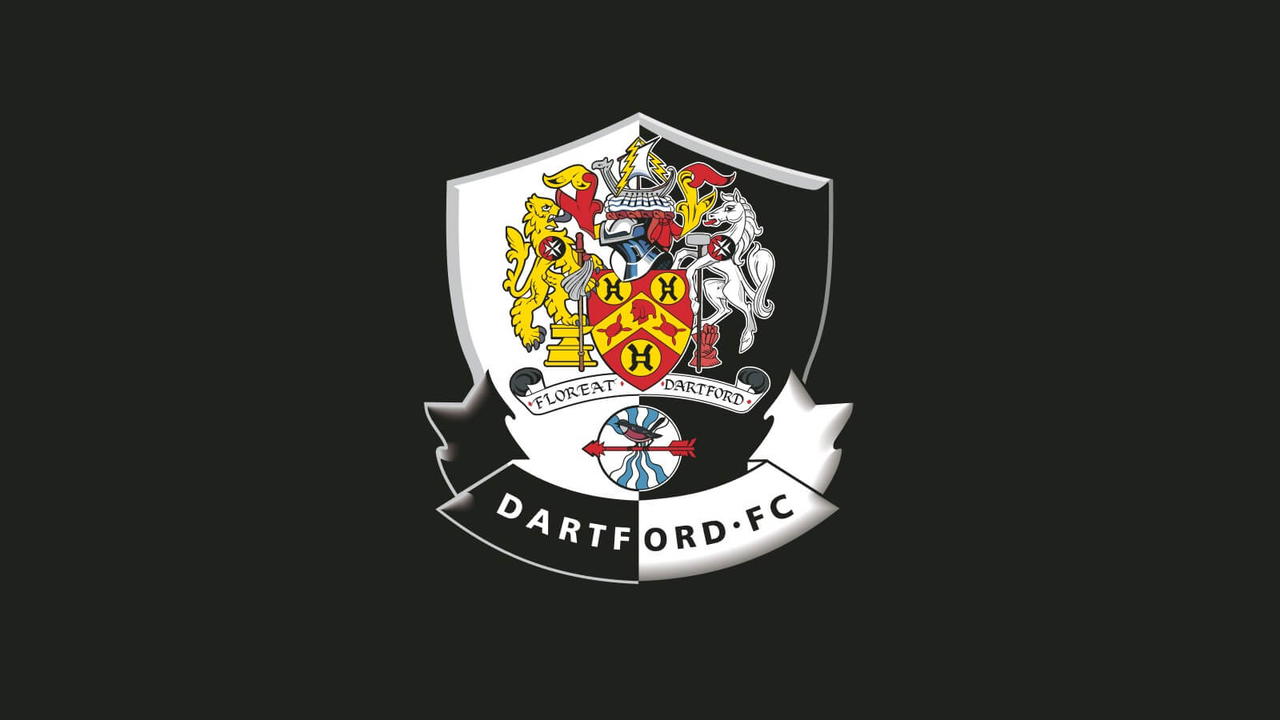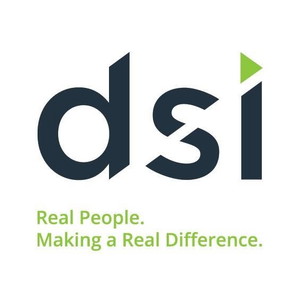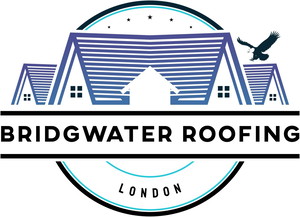Dartford FC: First Appearance and Travel policy
| Implementation Date: | 12 / June / 2024
|
| Agreed By: | Jack Smedley
|
| Next Review Date: | 01 / August / 2026
|
Statement:
Whenever Dartford FC makes the decision to include a young person under the age of 18 in the first team, or development squad we have a duty of care to ensure their safety. The aim, whilst ensuring the safety, is that the young person can grow their confidence, self-esteem and develop their skills.
When inviting a young player under 18 to a senior or first team game we will consider all the risks and put in place some safeguards.
Therefore, the inclusion of a young person into the squad will be carefully planned, and preparations made well in advance to ensure that any concerns from the player, parents or carers are addressed. We will ensure their safety of first appearances and travel through following our Safeguarding policies and procedures and those of the FA.
Purpose:
This Toolkit has been designed to help Welfare Officers and Designated Safeguarding Officers to prepare and think things through in advance to support your club in safeguarding their young players on their debut. This guidance provides information on good working practices which will be regularly reviewed and, where appropriate, improvements made. Suggestions to improve working practice and safety are welcomed from any source. The information contained in this document has been developed by EFL Clubs and is seen as good practice to support the transition of young players into the adult game, therefore we have adopted this for Steps 1-4. Please ensure you read through the whole document before making any plans.
DBS checks:
Questions have been asked in the past regarding those travelling to an away game, for example;
When a player U18 is staying overnight at a hotel as part of the senior team, does everyone travelling need a Disclosure and Barring Service (DBS) and must the First Team Manager have a DBS when a player who is U18 is involved in a First Team game?”
Answer: Not all travelling need to be DBS checked, HOWEVER, The Manager must be!
Away game travel:
If the debut of the young player is going to occur during an away game, then ensure that at least one person travelling has a DBS. The DBS document will state if the person has clearance for work with the children’s workforce or for work with the adult workforce. Those medical professionals who work with both adults and with U18s will require ‘child and adult workforce’ on their DBS certificate. The club physio is likely to already have an existing DBS certificate.
Speaking with the player, his parents and all other interested parties, before any debut, would ensure that all of those involved will know what to expect, especially if the team is travelling to an away game. It is important to ensure that everybody understands that no single person is solely responsible’ for the care of the young player. Safeguarding is everyone’s responsibility. Therefore, all of those involved should be made aware of their personal responsibilities when a young player is making his debut for the first team. Whilst this policy is written around a debut appearance, the principle will apply for more regular senior appearances. Note: The younger the player is, the more vulnerable they may be.
Additional vulnerabilities to consider include:
1. the excitement and anxiety of playing for the first team or senior squad:
2. their keenness to do well and to impress and please the manager, coaches and team;
3. travelling to an away game as the only U18;
4. wanting to be one of the ‘grown-ups’ but being cautious and reminded of the code-of-conduct for U18s.
Step1 – Talking to parents/carers:
Talk to parents outlining some of the issues detailed in a) – e) below then follow up with a letter enclosing a consent form. Ask the parents / carers to sign and return the consent form. Template examples of a letter to parents / carers, a consent form and Code of Conduct are enclosed as Appendix 1- 3.
a) Outline what a great achievement it is that that their son/daughter has been offered the opportunity to debut with the First Team. If the match is an away game, explain that they are likely to be the only U18 travelling (if that is the case). Explain that they may have been called up, but that does not automatically mean they will play on the day.
b) Explain that you understand that their son/daughter may be thrilled at the prospect of playing but you are aware that they may also be nervous and even a little anxious. Also, tell them that you will be speaking to them (or have already done so) to reassure them and ensure they are comfortable and knows what to expect.
c) Explain that if away travel is involved, they will be in a hotel room alone and will not be sharing with any of the other players. The only exception to this would be if two U18s are travelling with the team, in which case they can share a room. Likewise, a child’s parent or guardian may also wish to attend and share a room.
d) Explain that you intend to ‘buddy up’ their son/daughter with one of the senior players. Seek their support, explain that you would like them to talk to their son/daughter to prepare them and try to ensure they know that this is a great opportunity, which should be enjoyed. Parents / carers should reinforce the fact that if they are uncomfortable about anything they should talk to someone they trust.
e) Explain that the reasons you are going through this process with them is to try to ensure that everything goes as smoothly as possible for their potential first team appearance.
Step 2 -Talking to the player:
It is highly likely to have been the Academy Manager or First Team Manager who has informed the player that they have been called up. The information in a) – g) below is a follow up conversation which should be undertaken by either the Club Welfare Officer (CWO) / Designated Safeguarding Officer (DSO) or by another appropriate person who the player knows and trusts. Therefore, the timescales for talking to players and parents may be interchangeable.
a) Congratulate the player on being selected to join the first team squad. Explain that they may have been called up, but that does not automatically mean they will actually play on the day. Be diplomatic in preparing them for this possible disappointment.
b) Discuss with the player that while you understand that they must be very proud at the prospect of playing, you also understand that they may be nervous and even a little anxious.
c) Explain that you will try to identify a ‘Buddy’ for them, and this may be a senior player who can provide support for them during their possible debut. Ask them if there is someone, they think they would feel comfortable with. However, be clear that this may not necessarily be the person who is identified as their ‘Buddy’.
d) Explain to the player that they do not have to tolerate any unacceptable ‘banter’ or behaviour and that they need to set their own boundaries and know what ‘line’ must not be crossed personally. Explain that there may quite a bit of ‘down-time’ and they should think about what they take with him to fill the time.
e) They also need to know that if the team are travelling to an away game, they will be staying in a separate hotel room and should not share a room with any adult over 18 (Unless it is a parent or guardian).
- f) Outline what is expected of them in respect of a ‘code of conduct’. That is what their person responsibilities are during the trip. This includes, specifically, ensuring that they understand they must have no access to alcohol (including the mini bar); no access to adult television or any adult materials: they should not engage in gambling; that they should use any social media platform in a responsible manner, in line with any club policy and must be careful about comments which may be misinterpreted or insulting to others in any way; clarify that they must not make any inappropriate comments about the football environment. The club may have additional responsibilities to add to this list.
g) Ensure the player, knows, and understands that if they have ANY concerns, they can speak
to their ‘Buddy’, Welfare Officer / DSO, or someone else that they trust.
Step 3 – Talking to the `Buddy`
As the CWO/DSO you will need to identify who may be the most suitable ‘Buddy’ for the young player. You may need to seek advice on this from the Academy Manager of other members of staff. Remember, however, to be sensitive when deciding on this issue. The idea is to try to support the player through a well-planned transition and not to create an environment where they ‘stand out more’ and is the focus of more attention.
Also remember the ‘Buddy’ should be someone that the player will feel comfortable with, however, it should be one of the senior players.
When you talk to the ‘Buddy’, it is important to stress that they are not responsible for the care of the young player. You are simply asking them to be a sympathetic ear, if required, and a mentor for the young player.
Step 4 – Talking to the person with the DBS
As stated earlier a First Team or Development Squad Match is not an activity designed for U18s, therefore DBS are not required by all the adults involved. However, to provide additional safeguards, one member of the support team should have an FA DBS certificate and be cleared through The FA for work in football. Generally, the club physio may hold an appropriate disclosure.
When you talk to the physio, or other person with the appropriate DBS, it is important to stress that they are not solely responsible for the care of the young player during any trip. The young player will not need constant independent supervision. You are simply asking them to be available for the young player, if required.
Young people over 16 years of age are often capable and legitimately entitled to live independently. A one-night stay in a hotel room alone is something young players may already have done as part of family holidays.
Step 5 – Talking to the Manager and the team
Realistically, it may be only a few days before a game when you are informed that a young player is going to be called up. Therefore, the best approach for ensuring everyone knows and understands their responsibilities when a young player is called up is to ensure that as CWO/DSO you address this issue during an in-house safeguarding training session.
Through well planned training and using this guidance as part of a club education programme, you should be better prepared for last minute confirmations of call-up which may occur a couple of days before an important game.
When delivering training, the key message would be:
a) Young players U18 are defined in law as a children and adults working with children need to not only protect those young players, but to also demonstrate standards of behaviour which do not leave the adults open to allegations against themselves.
b) If the game involves away travel, players U18 should be in a hotel room alone and should not share with an adult over 18.
c) An exception to this would be if two U18s are travelling with the team, in which case they can share a room.
d) Players and staff should not encourage young players U18 to engage in any inappropriate activities such as gambling; the use of alcohol or other inappropriate or illegal substances; or watching or engaging in any inappropriate adult behaviours.
e) Regardless of what experiences they, as experienced older players, encountered in the past, especially on their debut for the first team, players and all staff should recognise the
vulnerability of young players U18 and the risks associated with encouraging young players to engage in inappropriate activities.
f) It is important to remember that the younger the player, the more vulnerable they will be.
g) The best way to inspire young players to play well and fulfil their potential is to provide encouragement and praise, especially during times of challenge and anxiety, such as on their debut for the first team. Providing positive role models in the form of more experienced players who demonstrate appropriate behaviour can help the player and the club.
All staff that work with young players are in a position of trust. Young players, parents and carers must have confidence that any professional football club working with children will ensure that they provide a professional, trained workforce that understand their roles and responsibilities when working with U18s.
Planning and preparing for the time when U18s will be called up for a first team or senior appearance can only help to provide protection for; the players U18, the senior players, the club, the business and The Brand. It will also provide reassurance for families that their son will be provided with the right guidance and support during his development.
If further clarification on any issue is needed, then please contact: (Name of Club Designated Safeguarding Officer and contact details)
Club Welfare Officer / Safeguarding Officer
Name: Emma Colmer
Email Address: cwodfc@gmail.com
Tel: 07815 141256
County FA Designated Safeguarding Officer
Name: Lucy Kidd
Email Address: safeguarding@kentfa.com
Tel: 01622 791850
National League Designated Safeguarding Officer
Name: Martyn Cannon
Email Address: Safeguarding @thenationalleague.org.uk
Tel: 0121 7142207
Appendix 1 – Template Example Parents’ Letter – Male Player
Dear Parent/Guardian
We are delighted to inform you that your son, (name) has been selected to join the first team squad this weekend in the match against ///////. We are looking forward to having ///// with us for the match, but we want to ensure we put appropriate safeguards in place as he is still under 18 years of age.
Please complete the consent form attached to this letter and return it to the Welfare Officer/ Designated Safeguarding Officer (contact details below) as soon as possible. An electronic copy with your typed signature will suffice.
This is a fantastic opportunity, and we hope he really enjoys the experience. It is important to remember that being called into the squad does not automatically mean that he will play on this occasion; however, he should be congratulated on this achievement at such a young age. If he does not play on the day, we hope you can reassure him of how well he has done by being selected.
We understand that your son may be nervous and even a little anxious with this new and exciting challenge. To support him through this we are hoping to put a few things in place, and we hope that you will also talk a few things through with him before the game.
We intend to identify a senior player who will act as a mentor and will ‘buddy up’ with your son. This is to provide him with someone he can turn to if he needs advice or support. It would be helpful if you discussed with him what a great opportunity this is, that he should try to enjoy the experience but that if he is uncomfortable about anything or has any concerns then he should talk to his ‘buddy’ or someone he trusts.
If the game involves away travel, he will be in a hotel room alone and will not be sharing with any of the other players. The only exception to this would be if two U18s are travelling with the team, in which case they will share a room.
We will also be providing your son with a Code of Conduct which we expect him to adhere to. This is just to outline standards of behaviour which the club expects of players U18 when placed in an adult environment. It would be helpful if you could support this guidance and reinforce the requirements of the club.
We know this is a great occasion for //// and wish him luck with the opportunity and challenge.
Yours sincerely
Appendix 2 – Template Example Parents’ Letter – Female Player
Dear Parent/Guardian
We are delighted to inform you that your daughter, (name) has been selected to join the first team squad this weekend in the match against ///////. We are looking forward to having ///// with us for the match, but we want to ensure we put appropriate safeguards in place as he is still under 18 years of age.
Please complete the consent form attached to this letter and return it to the Welfare Officer/ Designated Safeguarding Officer (contact details below) as soon as possible. An electronic copy with your typed signature will suffice.
This is a fantastic opportunity, and we hope he really enjoys the experience. It is important to remember that being called into the squad does not automatically mean that she will play on this occasion; however, she should be congratulated on this achievement at such a young age. If she does not play on the day, we hope you can reassure him of how well she has done by being selected.
We understand that your daughter may be nervous and even a little anxious with this new and exciting challenge. To support her through this we are hoping to put a few things in place, and we hope that you will also talk a few things through with her before the game.
We intend to identify a senior player who will act as a mentor and will ‘buddy up’ with your daughter. This is to provide her with someone she can turn to if she needs advice or support. It would be helpful if you discussed with her what a great opportunity this is, that she should try to enjoy the experience but that if she is uncomfortable about anything or has any concerns then she should talk to his ‘buddy’ or someone she trusts.
If the game involves away travel, she will be in a hotel room alone and will not be sharing with any of the other players. The only exception to this would be if two U18s are travelling with the team, in which case they will share a room.
We will also be providing your daughter with a Code of Conduct which we expect her to adhere to. This is just to outline standards of behaviour which the club expects of players U18 when placed in an adult environment. It would be helpful if you could support this guidance and reinforce the requirements of the club.
We know this is a great occasion for //// and wish her luck with the opportunity and challenge.
Yours sincerely
(Insert)
Appendix 3 – Template Example – U18 First Team Appearance Consent Form
(NAME OF CLUB) CONSENT FORM
Congratulations to you and your son: he has been selected to join the senior squad in a forthcoming match against (name of club). In order that your child may participate in this fixture we are seeking your consent and support in preparing him for the game. It is essential that you complete and return this form to (name of person and contact details), supplying relevant information and your consent as parent/legal guardian.
- By consenting to this I am stating that my child is in good health and that he is not participating contrary to medical advice.
- In the unlikely event of an accident occurring, I give my permission for a designated representative of the club to authorise emergency medical treatment, including the use of anaesthetic if deemed necessary.
- Appearance as part of the senior squad will include TV and use of photographs/digital images. A
separate images consent form should have been signed by you at the start of the season/contract, if not ensure you speak to the DSO to request that consent form also.
Player/child’s name ……………………………………………… Date of birth………………….. Age………….
Name of Parent/Guardian ……………………………………… Relationship to Child ……………………………
Address……………………………………………………………………………………………………………………
Emergency contact telephone no……………………………… Mobile no ………………………………………….
Please provide a second emergency contact name and telephone number:
Name……………………………………………………………. Relationship to Child ……………………………
Emergency contact telephone no……………………………… Mobile no ………………………………………….
If your child has any medical conditions that may need to be considered, please give details below. The following information will assist the party leaders in caring for your child.
Special dietary needs …………………………………………………………………………………………………….
Does your child suffer from : Asthma Hayfever Diabetes Epilepsy Nut Allergy
Any other allergies (e.g. Penicillin/nuts/anaesthetic) ……………………………………………….. Please add any
other relevant information: ………………………………………………………………………………………………
Important information to parents: The use of any regular medication by a professional player must be reported
to the club medical team to ensure that anti-doping regulations are met. You must inform the team manager of the use of any medications including over the counter purchases.
I consent to my child participating as a member of the first team/senior squad on this occasion and for the rest of the season or scholar contract if required.
Signature: ………………….………….…………………………… (Person with Parental Responsibility)
Date: ……………… Please write your name in full ………………………………………………….…………………..
Office us only: Ensure a copy of this is given to the Welfare Officer / Designated Safeguarding Officer and a copy kept on the player file.
Appendix 4 – Template Example – Code of Conduct U18 Player Senior Appearance
Congratulations on being selected to join the senior squad for the forthcoming matc against. When representing the club at a senior level we expect certain standards of behaviour and we have outlined below a code of conduct which we expect you to maintain.
- Represent the club in a manner and to a standard expected by a professional football club.
- Recognise that whilst being invited into the squad, you may not be selected to play on the day. Understand that the Manager’s decision is final and that any response to any such decision will be that expected of a professional footballer.
- Understand that you must not engage in any inappropriate adult activity and that you must not consume alcohol; access adult literature of any kind or engage in gambling whist with the first team.
- Agree to only use any social media platform in a responsible manner and not post any comments which may be misinterpreted or are insulting to others in any way, including making inappropriate comments about the football environment.
This is an exciting and challenging time for you; however it is important that you understand that if you have any concerns you can speak to someone you trust or to the manager.
- We hope to identify a ‘Buddy’ who will act as a mentor for you. If you need advice or support, he will be available to provide this.
- It is critical that you understand that you do not have to tolerate any unacceptable ‘banter’ or behaviour. Know your own boundaries and don’t be afraid to talk to someone you trust if you have any concerns.
- If you are travelling to an away game, you should be staying in a separate hotel room and must not share a room with any adult over 18. If there are two youth team players travelling, you may be expected to share a room.
If you have any concerns and would like to discuss these issues further, then you can contact the Welfare Officer / Designated Safeguarding Officer (name) on Tel:
Enjoy the experience, and good luck if you are selected to play during the match.
Policy Reviewed: (DATE)
By: (INSERT BOARD MEMBER REVIEWING POLICY)
Next Review Date: (INSERT REVIEW DATE)




















